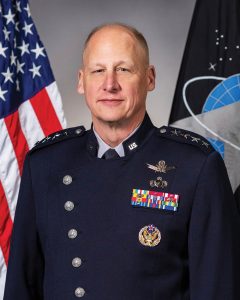
Lt. Gen. Michael A. Guetlein ’95 serves as the vice chief of space operations, the United States Space Force’s second-highest military leader.
By Jessica Graue ’04, ’09
People can try to plan out their entire lives, but it doesn’t always happen the way it was supposed to. For Gen. Michael A. Guetlein, that is actually a good thing.
Guetlein, who graduated from Wright State University in 1995 with a master’s degree in business administration, is now the vice chief of space operations, the United States Space Force’s second-highest military leader. Previous to his promotion from three- to four-star general in December, Guetlein was the commander of Space Systems Command.
He credits his time in Dayton for putting him on the path to where he is now.
Guetlein grew up in Owasso, Okla., where he graduated from high school. Hunting, camping, and pretty much anything outdoors were his main interests. He studied mechanical aerospace engineering at Oklahoma State University.
His father served in the Korean War, and his grandfather served in World War II. Guetlein told his mother when he was 3 that he was going to be in the Air Force. She thought he might grow out of it, he recalls. He didn’t, and he became the first in his family to earn a college degree.
“I was interested in airplanes and mechanical aerospace, so I took off to Oklahoma State on my own. My parents didn’t even believe I was doing it until I pulled out of the driveway that day. The first semester I kind of ‘band-aided’ it together, and then I got picked for a scholarship starting the second semester,” he said.
He graduated in 1991, and his first assignment was at Wright-Patterson Air Force Base (WPAFB) as the AC-130U gunship support manager in the Special Operations Office. Guetlein said some technical issues with contracts made his job unenjoyable, so he began looking at other services.
“From an experience perspective, I was not having any fun, but from a mentoring perspective, that (first two years) really kind of set the rest of my career,” he said.
While in college, Guetlein was dead set on being a navigator. However, just before graduating, the Air Force said it was not going to accept any more navigators, so his path as an engineer began.
A few years later, navigator training was reopened, but, after a meeting with a colonel while working at WPAFB, his career path completely changed.
“After an hour, he convinced me that I didn’t ever want to be a navigator in the United States Air Force because they were just going to shut down the career field again. He said, ‘You’re always going to be a back-seater, and it’s not in line with your personality, and you should do something else.’ That single moment put my career on a completely different path,” he said.
It was then that he enrolled at Wright State because, he said, earning an M.B.A. in acquisitions is the perfect complement to an engineering degree. Understanding the technical side of the business is one thing, but it’s invaluable to understand the business side as well, according to Guetlein.
It was not an easy degree. I can remember spending a lot of long nights studying in the tunnels, studying to take a test the next day,” he said.
Guetlein said he recommends that anyone earn their M.B.A. from Wright State, especially if the student is in the Air Force or working at WPAFB. He praised the professors for the way they helped students and how they were understanding of their day jobs.
“The instructors understood the demands that were on us, especially travel. So they worked around our travel schedules quite a bit to try to make us successful. That was a huge benefit,” he said.
While only in Dayton for a short time, Guetlein said he enjoyed the city and the people. His favorite moments were the fall season and all the festivals the city offered. He said fall is a great time to be in the Midwest, joking that in Oklahoma, they call the Midwest the Northeast.
In 1993, he worked as the chief of the B-2 Bomber Propulsion office. He received that job offer after a fairly secretive meeting in the base’s basement vaults. The B-2 Bomber program was still mostly “black,” or under wraps, at that time.
“I didn’t even know the B-2 program was in our building. I was hired to be the propulsion manager for all the B-2 airplanes, both at flight testing and production. I had an absolute blast at that job. I learned a lot that I still use to this day,” he said.
Guetlein left Dayton in 1996 and packed his resume with many more positions, appointments, and degrees. He participated in the Air Force Intern Program at the Pentagon and traveled the world. He was deployed to Bosnia and now has three master’s degrees. He worked with Elon Musk at SpaceX and got to see its first rocket fly.
“I was the Air Force’s first offensive counterspace program element monitor. In layman’s speak, my job at the Pentagon was to run around D.C. talking about how space was contested and how we need to start defending our capabilities in space. I would get laughed out of rooms. I would get told I’m crying wolf,” he said.
How wrong his opponents were. He saw how important space was when others did not.
Guetlein moved to many other positions around the country, and in 2021, landed the job of Commander for Space Systems Command in Los Angeles. He is responsible for approximately 15,000 employees nationwide and an annual budget of $11 billion, managing the research, design, development, acquisition, and sustainment of satellites and their associated command and control systems across 20-plus geographically dispersed units.
Guetlein said what he and his team do is absolutely necessary to the United States’ way of life. Keeping the satellites and GPS systems up and running for the country is crucial. Considering everything that uses GPS now, from phones to ATMs, according to Guetlein, “not having GPS for just 15 minutes in this nation would be catastrophic.”
“I know that what I am doing and what my team of 15,000 is doing is absolutely critical to the defense of this nation and to our way of life, as well as our international partners’ ways of life,” he said.
He said that, if anyone wants to be able to take on his job in the future, they need to be competent in engineering and business. An understanding of the threats that could affect the United States and knowledge of the global environment and global politics are all necessary.
Currently, there is a renaissance in space, Guetlein said, and the younger generation needs to be prepared. He also stressed how important a STEM education is for students.
Despite his travels and responsibilities, Guetlein still enjoys the little things in life. He has two daughters and resides with his wife in Los Angeles. He still loves the outdoors, camping, and motorcycles. His other interests include brewing beer and creating items out of stained glass.
For someone focusing on space, Guetlein is firmly grounded.
This article was originally published in the 2024 issue of the Wright State Magazine. Read more stories at wright.edu/magazine.

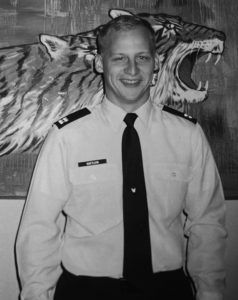
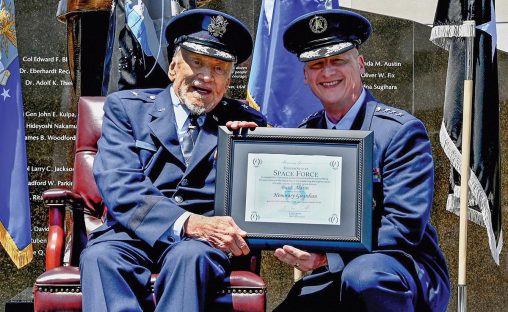
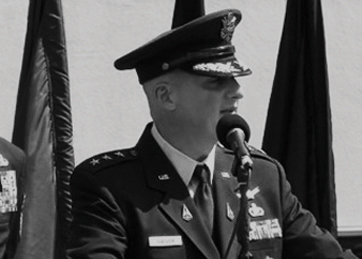
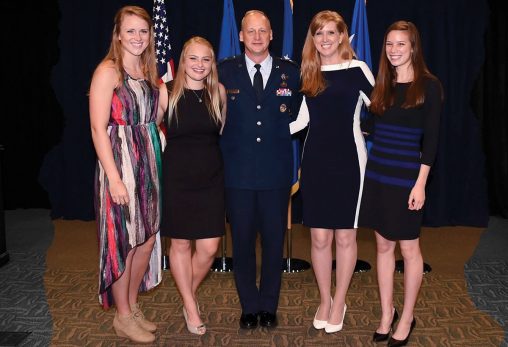
 Wright State names Rajneesh Suri dean of Raj Soin College of Business
Wright State names Rajneesh Suri dean of Raj Soin College of Business  ‘Only in New York,’ born at Wright State
‘Only in New York,’ born at Wright State  Wright State president, Horizon League leaders welcome new commissioner
Wright State president, Horizon League leaders welcome new commissioner  Wright State celebrates homecoming with week-long block party
Wright State celebrates homecoming with week-long block party  Wright State baseball to take on Dayton Flyers at Day Air Ballpark April 15
Wright State baseball to take on Dayton Flyers at Day Air Ballpark April 15 